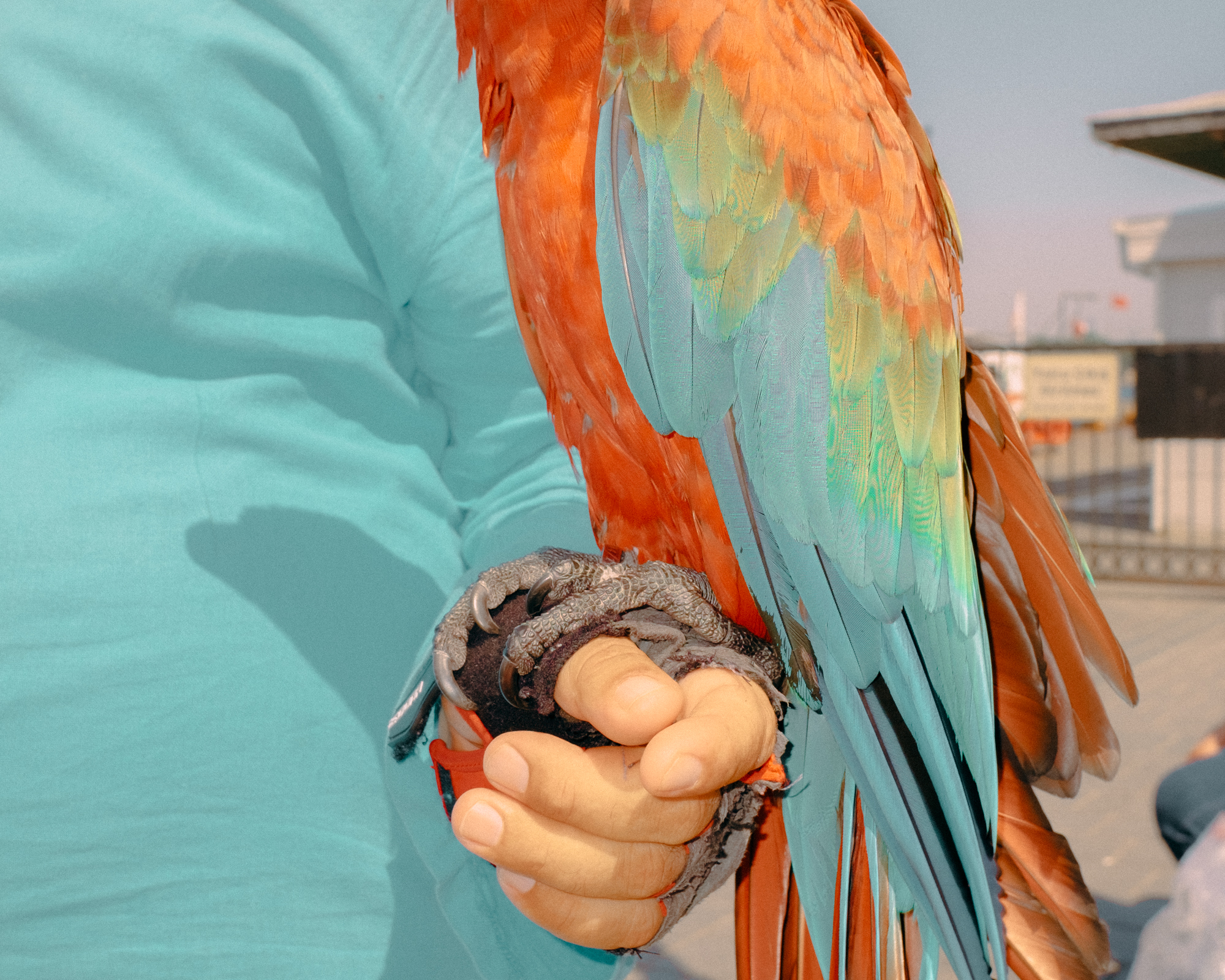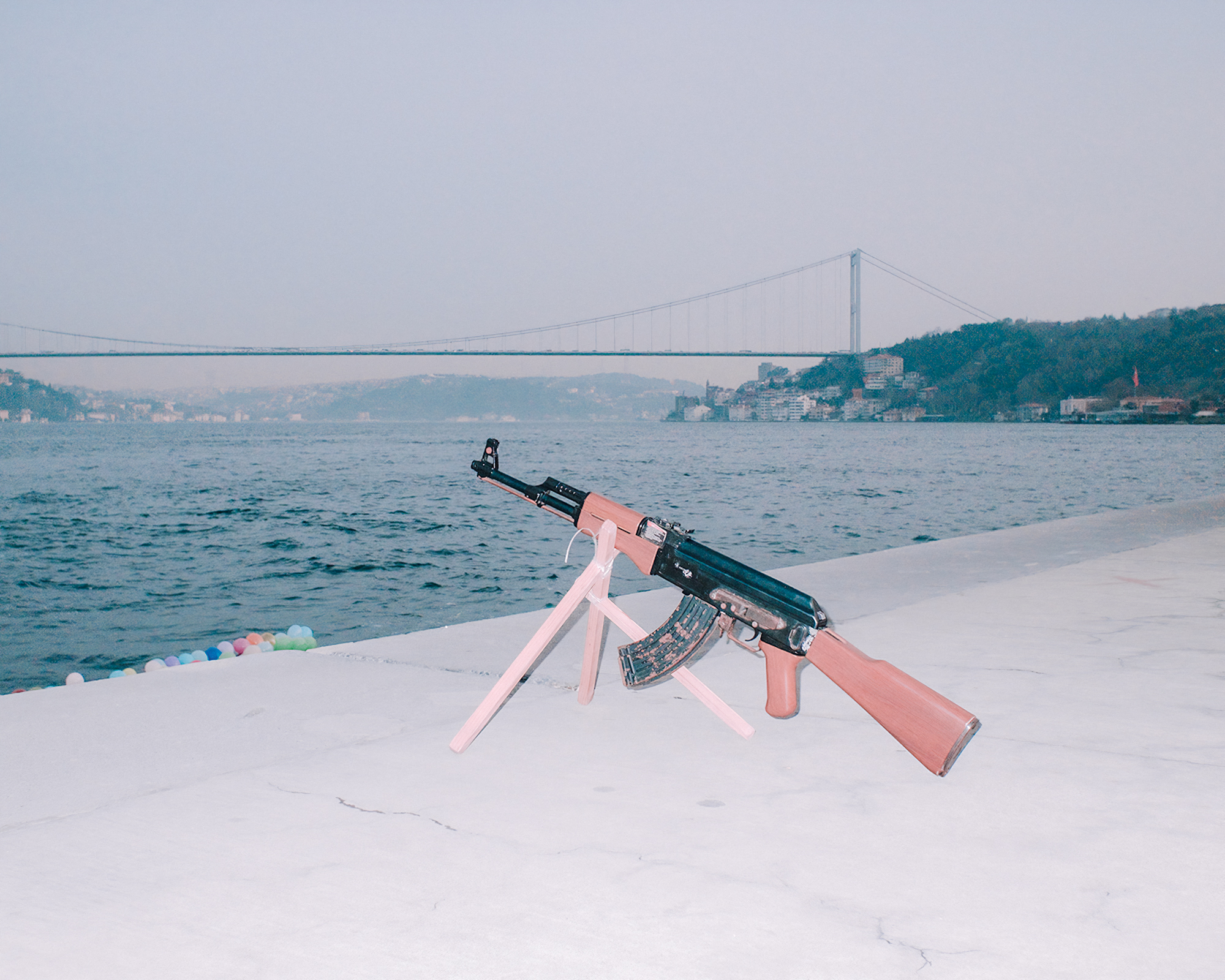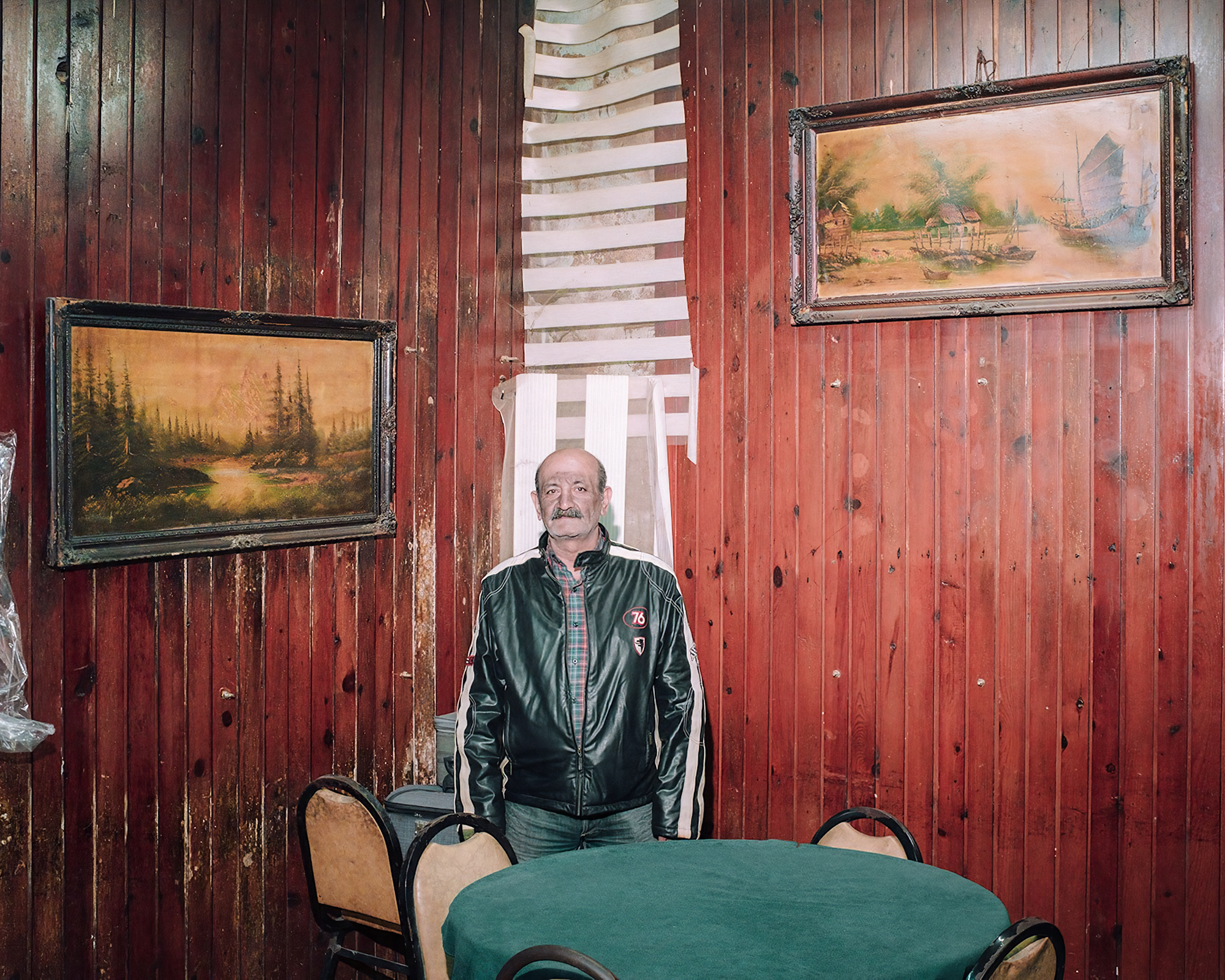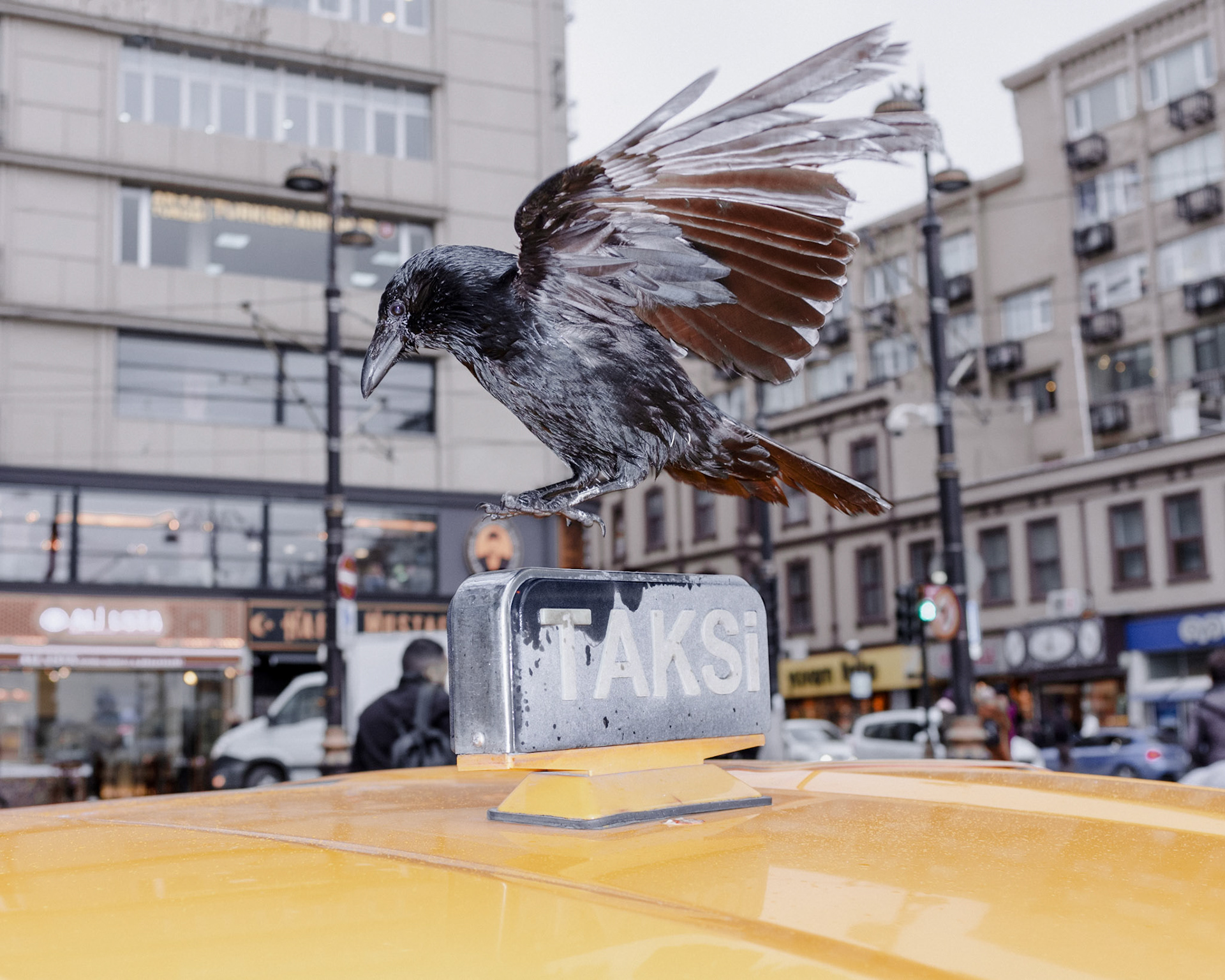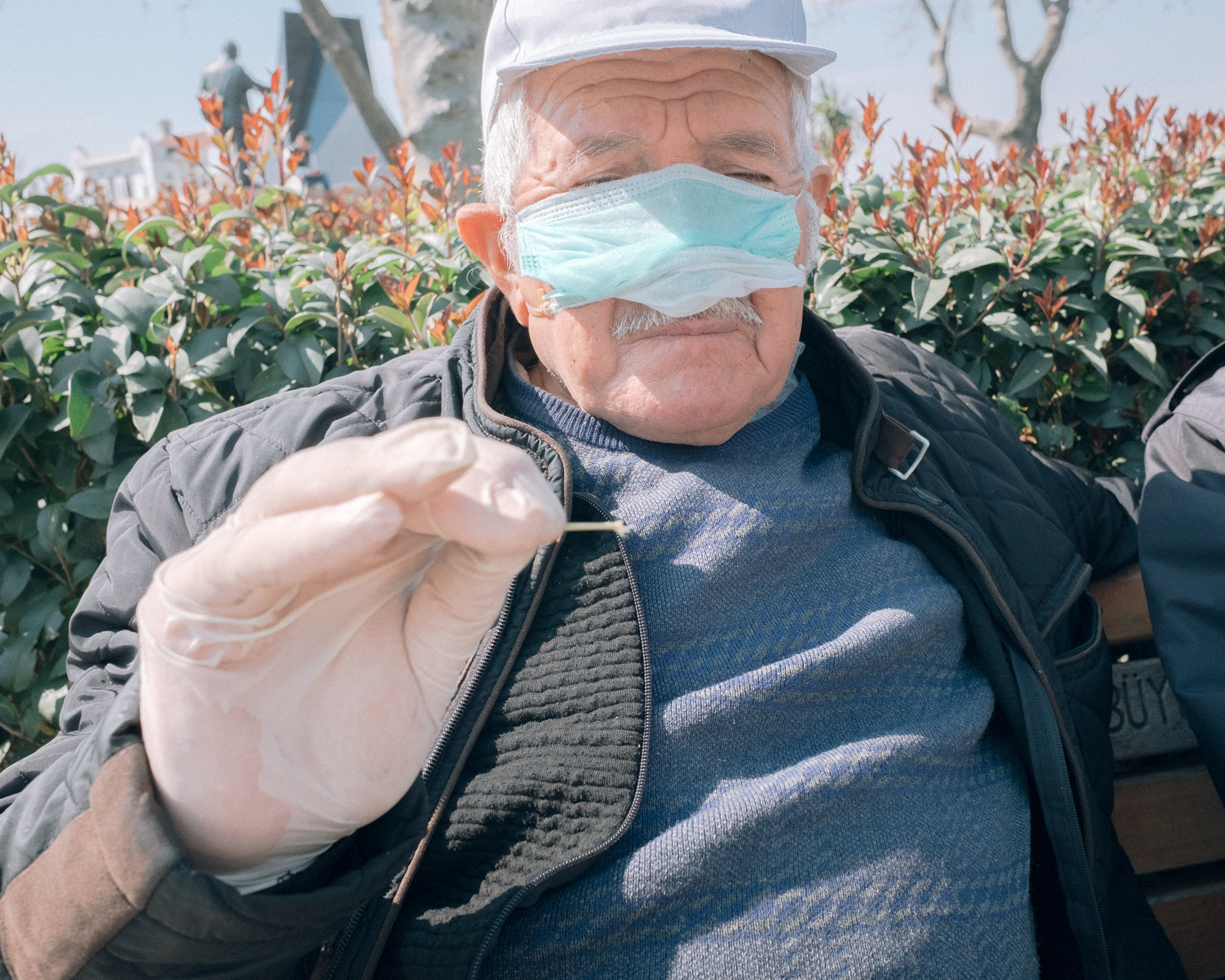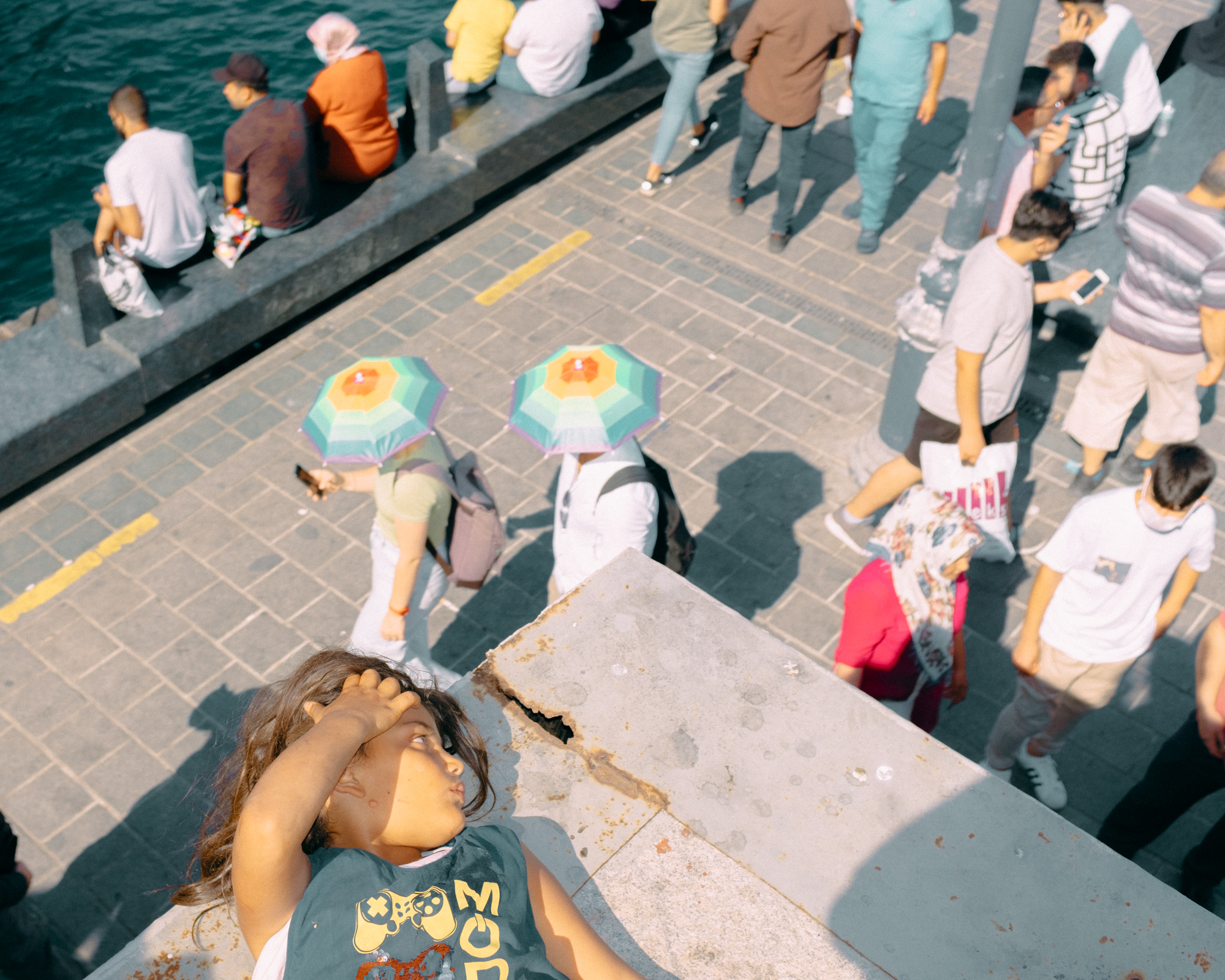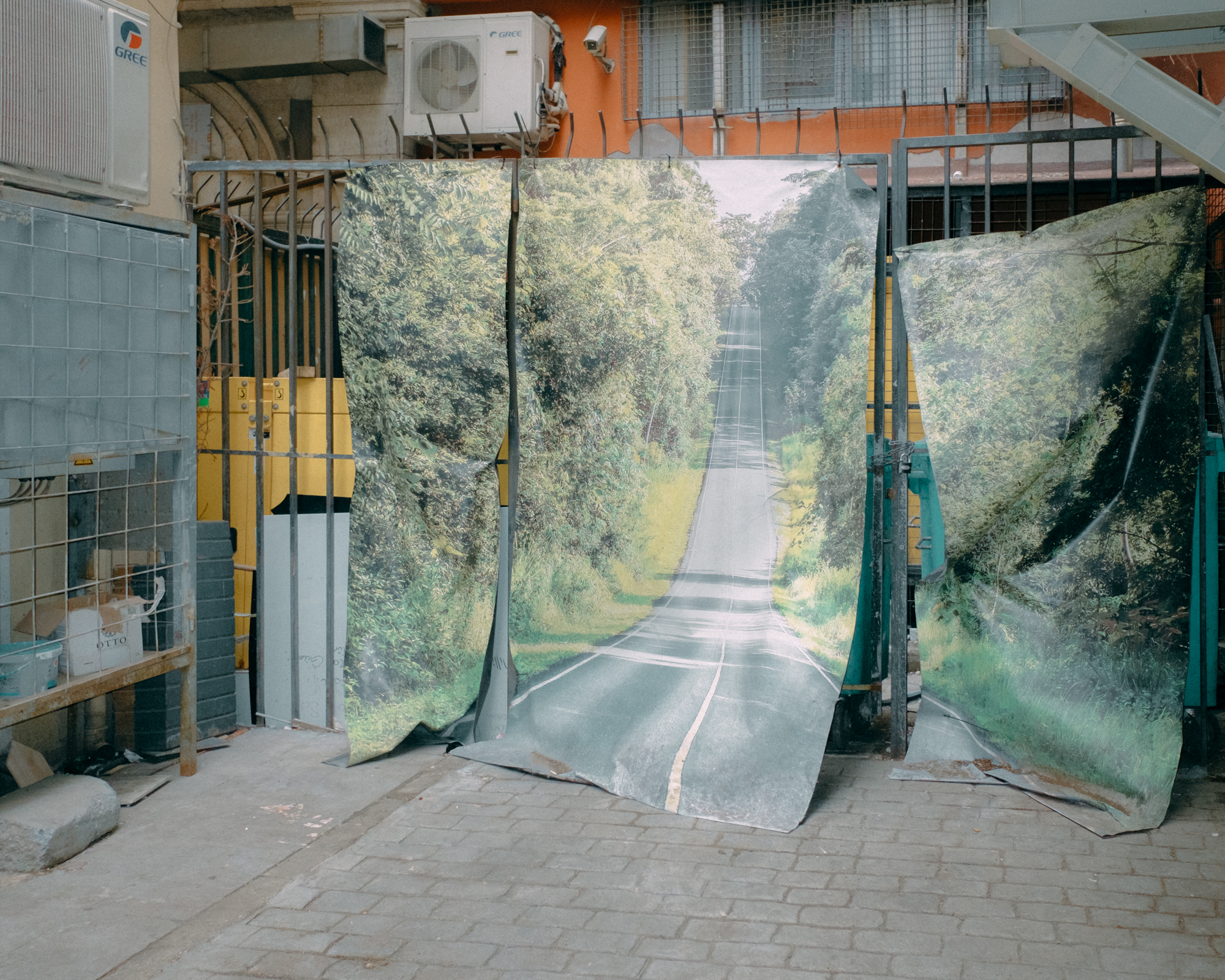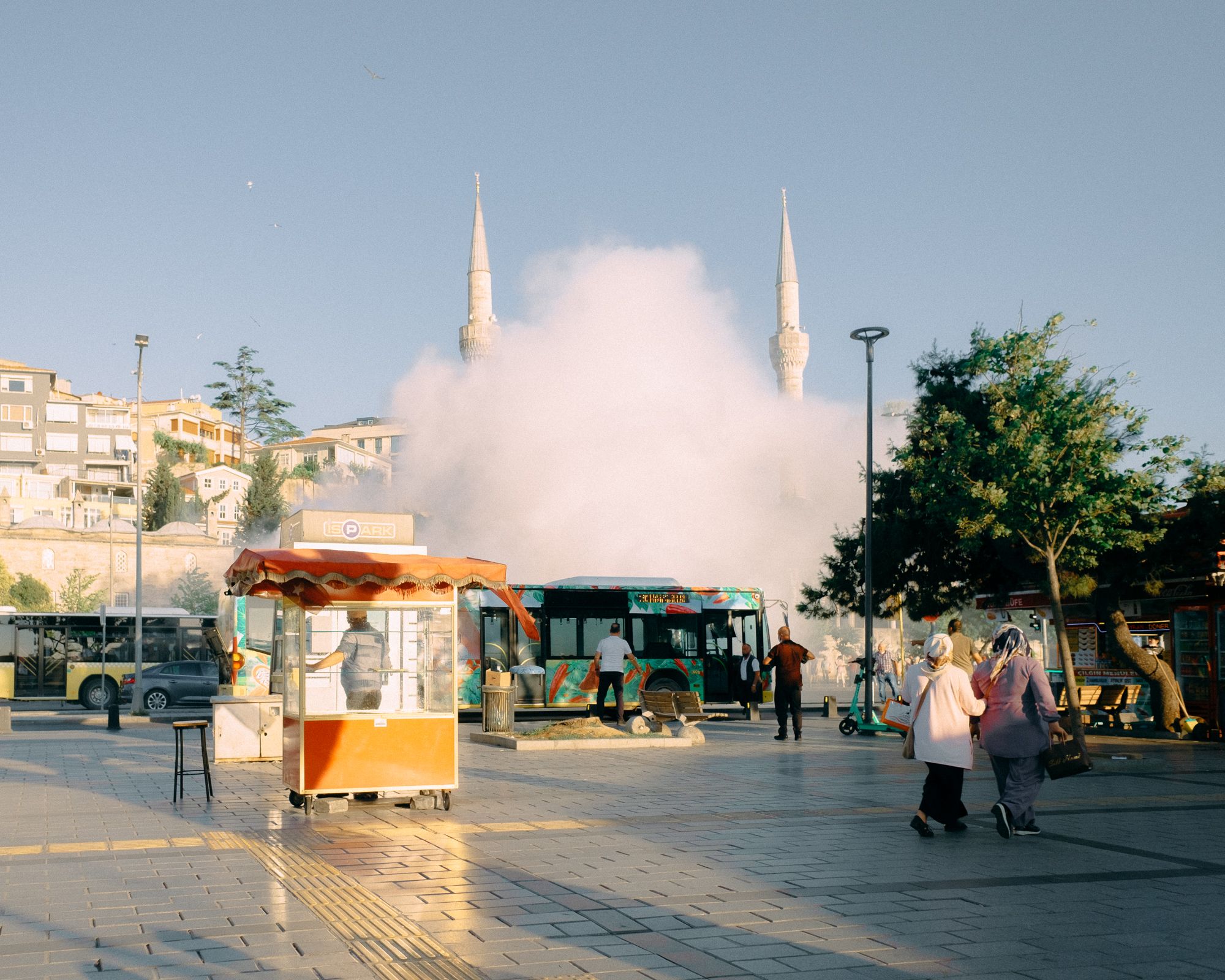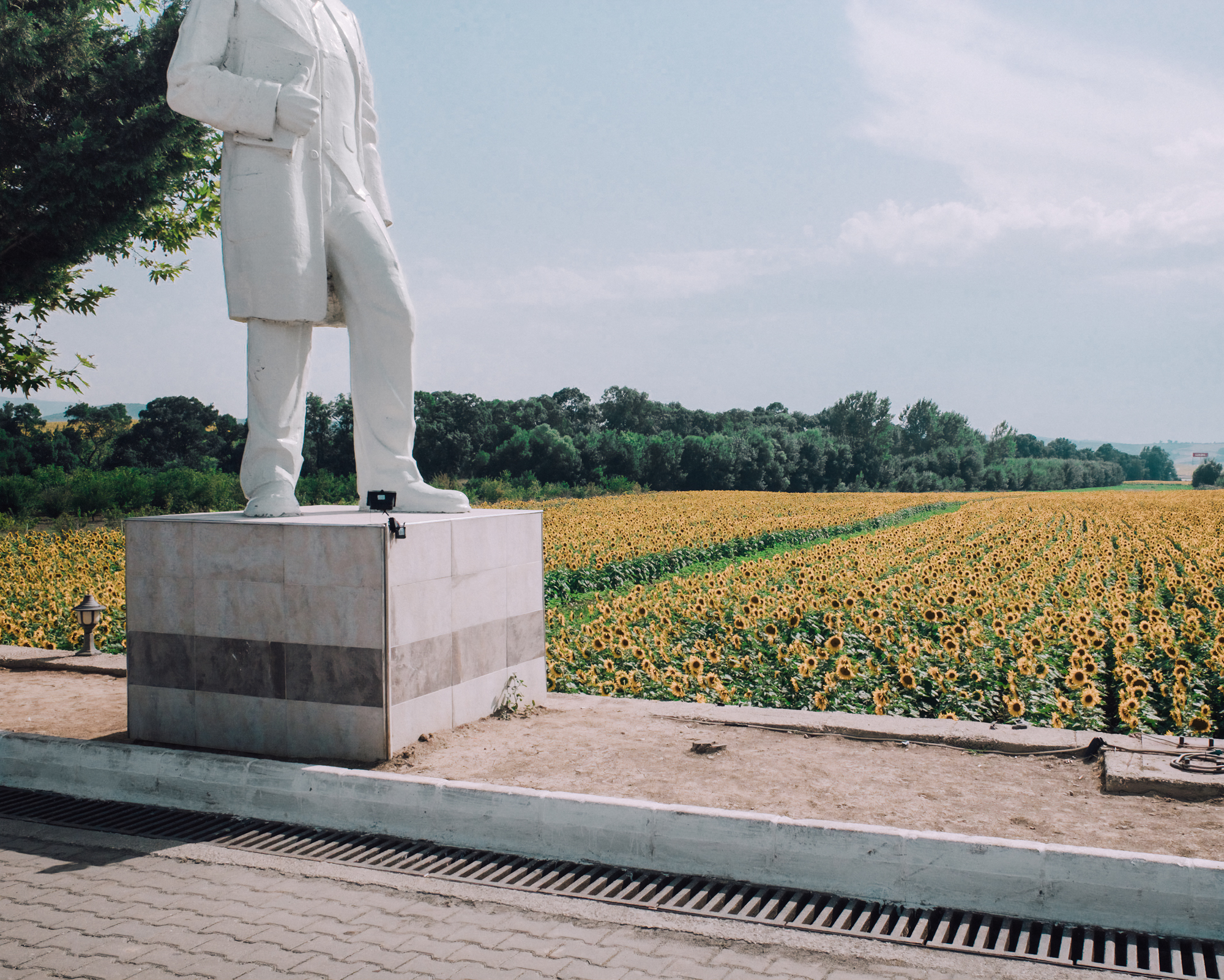Istanbul-based photographer Ci Demi approaches image making as a ‘tourist of disaster’. Whether in amongst a coup or courting an impending earthquake, his photographs capture uncanny moments of stillness in narratives both real and imagined. Inspired by horror stories and guided by a photojournalistic impulse to bear witness, Demi shoots his city and its inhabitants with a natural curiosity that emanates from each image.
Between his day job as a copywriter and his calling as a photographer, I caught up with Demi to discuss his relationship with Istanbul, upcoming photo-novella and why he always shoots with flash.
Can you tell us how you started out as a photographer?
It was 2015, I was 28, and I had no idea what I wanted from life. For a reason that I don’t quite remember now, I got it in my head to acquire a camera; so I did. I was working as a copywriter at an advertising studio at the time (I’m copywriting for another agency now; it’s my day job). Six months later, I started documenting house concerts in Istanbul for Sofar Sound, and eventually began working as a photojournalist for 140journos SO.
By that time, photography had already taken me to countless protests in my city and a civil war in southeastern Turkey. I thought I wanted to become a war photographer; it’s a bit embarrassing to admit but I think I was obsessed with that idea for a while. I was already making social documentary stories; I would embed myself in a story and follow it. I spent time staying with immigrants in Istanbul, documenting their hardships. I spent time with the feminist movement in Turkey, religiously following their protests and photographing them. But then, something changed. My approach to photography evolved. I realized I wasn’t telling my own story; I didn’t have a voice of my own, and I desperately needed one. I began focusing on more conceptual, fictional, ideas. I quit my then-agency, and I’ve been telling only personal stories ever since. I no longer accept editorial or commercial projects either (with the exception of fashion, because I adore it).
Istanbul stars as a vibrant and multifaceted subject throughout your work – do you think that capturing the city on camera has changed your relationship with it?
??My photography is defining my relationship with the city, that’s for certain. I used to love hating it, just like many people here, but yeah, photography has taught me to cherish the city’s misery. I live for it now. I long to experience the next thing it’ll offer me. Every time I go outside with my camera, I return having witnessed something inexplicably absurd and beautiful. I transfer my photos to Lightroom and start tinkering with their colors; only then I face my photographs’ true meaning and stories begin to take shape. I always use flash, even in daylight. Technical reasons aside, this has become both my self-defense and means of expression. It’s scary to shout “I’m here” in a city of 16 million people, but flash lets me do just that, and I feel safe.
You’ve said before that you sometimes listen to horror stories for inspiration – how does this language of fear and threat play out in your work?
To me, horror is the language of truth. It’s about something primal. I guess I’m drawn to that. When I think about it, I tend to build my stories around things I’m afraid of. For example, I am deathly afraid of the imminent, powerful earthquake that is expected to shake Istanbul, so I spent nearly three years shooting a story ( Will the World End in the Daytime ) about that. I’m told that people can see the fear in my photos; they sense that something’s ‘wrong’ and whatever it is, no one quite knows what. Maybe it’s my vocabulary, but I can’t express it with words in any of the languages that I speak, either. I can only photograph ‘it’. Something peculiar; something I like calling ‘cursed’. I’m still learning how to convey it visually. Maybe one day I will find the right words as well.
A lot of your previous photo essays, like Kiyamet Gündüz Mü Gelecek (Will the World End in the Daytime) and Nasil Zarifçe Paniklenir (How to Panic Gracefully) capture moments of stillness before or during disaster. Why is it important for you to document this aspect of a narrative?
I taught myself photography by trying to become a witness; I had to be there, see everything with my own eyes and document whatever that may be. Having witnessed war to some extent, I internalised the importance of bearing witness. But the more I got into telling my own story, my other passion —horror fiction— came into play. It’s a huge part of who I am, and the stories I was interested in required me to create a fictional narrative. That’s where my interest in stillness comes into the picture. I don’t use cliché elements of horror; all my photographs are taken in daylight, I never stage my photographs — I work with what I witness. But I also tell a fictional story. I yearn to become a witness of something unseen. The stillness creates a tension beyond senses for me. When I was documenting the first days of the Coronavirus pandemic in Istanbul, my press card allowed me to wander the empty streets, but all I could think of was I Am Legend (note: the book is better). It was scary, but I was curious. I was a tourist of disaster. Speaking of books, my all-time favourite novel is Kurt Vonnegut’s Cat’s Cradle . Surprise: it’s also about the end of the world.
This summer you’re focused on a project called Unutursan Darilmam (I Won’t Be Sad If You Forget Me), which is about feelings of loneliness. What drew you to this theme?
The past is a strange place. Always distorted, unreliable. But I wanted to document a time in my life that I don’t want to forget. In December 2017, a harddisk that contained all of my photographs was stolen, and I fell into a massive depression. In November 2018, my one-year marriage couldn’t survive my endless mourning, and I spent the entirety of the next year inside my family’s house. That spring, I was diagnosed with bipolar disorder. Heavily medicated, I was never quite myself and only in early 2020 did I finally wake up from that unpleasant dream state. By then the pandemic had hit the world and I was finally outside again, but no one was around. I’d been isolated for so long that I had to relearn many of my social skills. I had ‘lost’ everything but my small camera. So, I did what I knew how to do; create stories, hoping to tell them one day. And here it is, you’re looking at those pictures now. The story is told, I have healed. Hey, I even found love again. And my bipolar is in remission, so it’s all good. I am strong as hell, which is surprising because I’m a Cancer.
What’s the most challenging part of your practice?
I don’t dislike people, in fact, I’m very much interested in them but boy, do they make it extremely hard to tell stories. Whenever I turn my lens towards emptiness, it’s because I couldn’t photograph a person. I am in love with every single face on earth, I want to discover their every angle… but it’s not always possible. You need to have the character to direct those interactions. I think that’s why I took a liking to street photography; I quickly ‘collect’ faces and get out — no interaction, no mess. I get yelled at a lot but I don’t mind, people are people for a reason.
Are there any particular artists or photographers whose work you admire?
A lot of my viewers liken my work to Martin Parr’s, which surprises me every single time. So I delved into his work to understand. What I found was a brilliant man with a stellar sense of humour. I look up to him. But I’m more of an Alec Soth kind of person, and my photography is nothing like his.
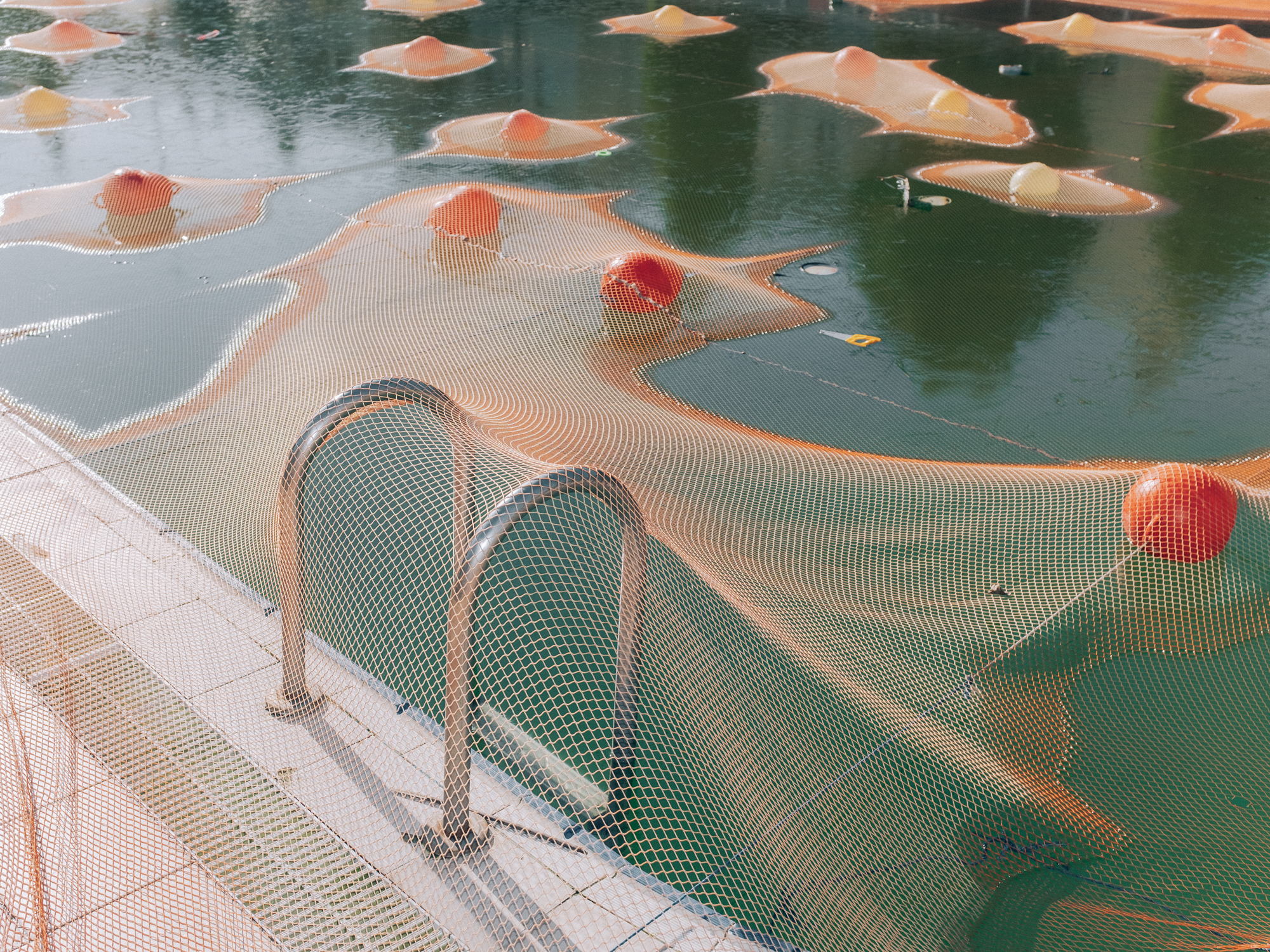
Do you have any news or upcoming projects that you’d like to share with us?
I recently launched a website called Istanbullu (which translates to ‘Istanbulite’) and I’m gathering my photographic universe under that title, including selected pictures and paragraphs from my photo-novella Istanbul’dan Korkuyorum ( I Am Afraid of Istanbul ). The paragraphs are in Turkish for now, but translations will be up in the following months.
